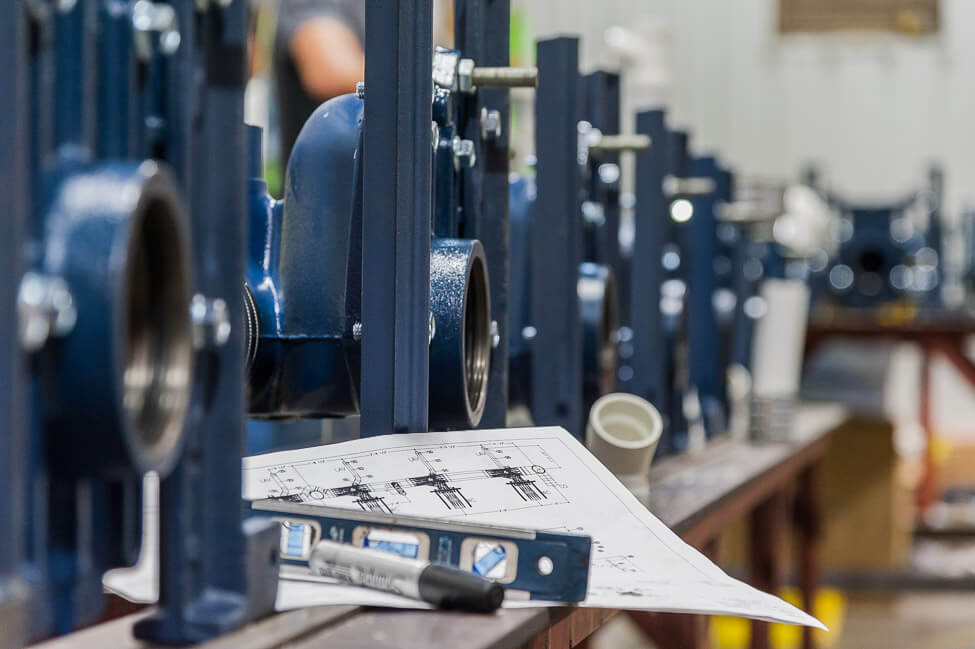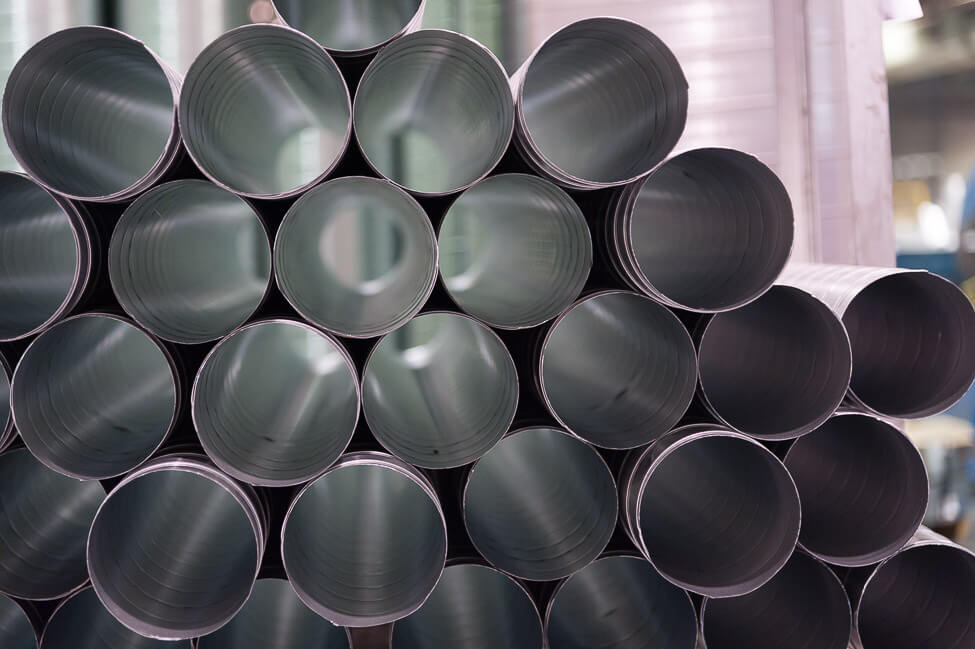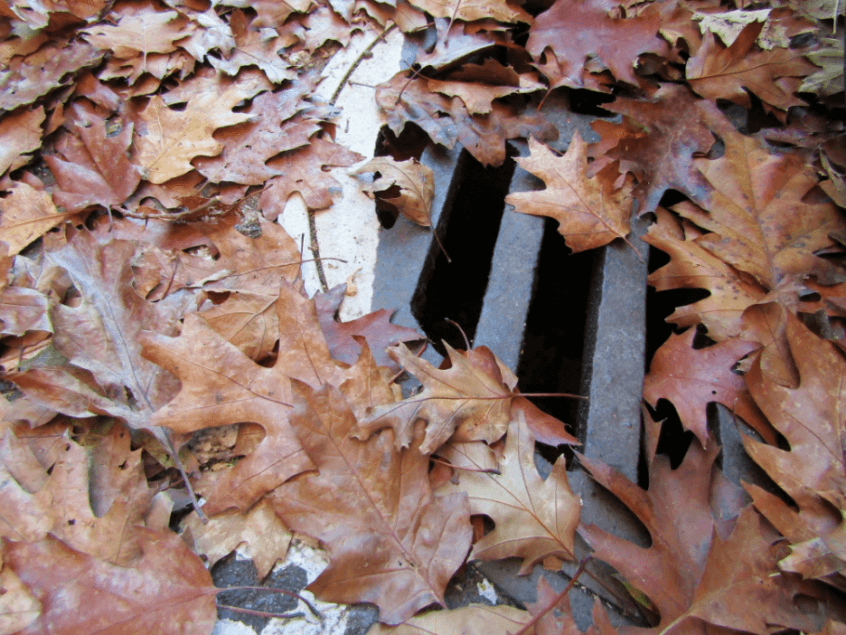Fall leaves are now past their peak color and are rapidly dropping. Every gust of wind brings down hundreds of leaves that collect in parking lots, walkways, and in the landscaping around commercial buildings. In a short time, trees can be laid bare, and the ground is covered in a thick layer of leafy debris. When rain comes, storm drains can become quickly overwhelmed.
Minimize Flood Risk
Rainfall and sprinklers often wash leaves, sticks, and other debris into nearby storm drains. Landscape companies sometimes blow leaves into storm drains during parking lot maintenance, leading to increased flood risk and drain clogs. Flooding poses more than just an inconvenience in business parking lots; water may back up into buildings, causing structural and content damage. Wet drywall and carpeting can cause mildew issues, which become a health hazard. Water can seep into cracks in the foundation, compromising structural integrity. Mechanical and electrical systems located in a building’s basement can be ruined. These problems are expensive to repair and often constitute an emergency call to commercial plumbers and water restoration specialists.
Avoid Sinkhole Repairs
Blocked storm drains can contribute to sinkhole formation, either gradually or rapidly, in landscaped or paved areas near a storm drain. When the soil becomes saturated, a depression can develop, and erosion around the area can cause the ground to collapse or a pipe to shift and crack. Sinkhole repairs require a professional to seal any cracks or leaks in the drain pipes and compact and stabilize the soil around the cave-in. This costly expense can be avoided by properly maintaining storm drains.
Stop Environmental Damage
Too much leaf litter in urban stormwater creates an environmental challenge. As the organic material decays, it adds nitrogen and phosphorus to the catch basin and nearby streams. Pollutants, including fertilizer, motor oil, and other chemicals, are also carried through the storm drains along with the water runoff. This damages water quality and can threaten aquatic life and other wildlife. The resulting stagnant and polluted water can cause an unpleasant smell in the surrounding areas.
Don’t Ignore Potential Problems
Storm drains are often ignored until there is a significant problem. Even storm drains cleaned earlier in the year can develop new issues in the fall. McKenney’s is your single-source provider for storm drain inspection and clean-out services. The City of Atlanta and many other municipalities require an annual inspection of storm drains, and McKenney’s is Georgia Soil and Water Conservation Commission Level 2 certified to complete the work. Contact us today.







